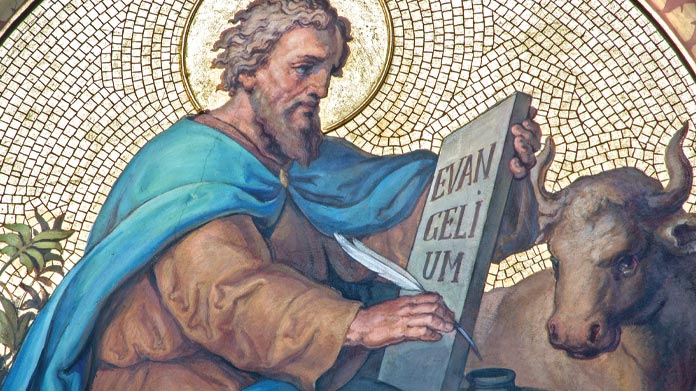Good morning, good people,
May the Lord give you peace and blessings in the Holy Spirit. It is 18th October 2025. We reflect on 2 Timothy 4:10–17 and Luke 10:1–9. We celebrate the feast of Saint Luke, the Evangelist.
Meeting God in Jesus is possible for all of us. St. Luke found God in his life through the message and miracles of Jesus.
We celebrate the feast of St. Luke, who was from Antioch. From the New Testament, we know that he was a physician, a fellow worker, unmarried, a close disciple of the Apostles, and later a close companion of St. Paul in spreading the Good News. He is the author of the Acts of the Apostles and the Gospel of Luke.
Tradition shares unverified details of St. Luke, including that he was one of the two disciples on the road to Emmaus. In addition, Dr. Norman Geisler points out the erudition of St. Luke in the way he mentioned thirty-two countries, fifty-four cities, and nine islands without a single factual or historical error.
Have you read the world-famous novel Dear and Glorious Physician by Taylor Caldwell? It presents an inspiring story of St. Luke — a man of science, an author, and a Gospel writer. Two thousand years ago, he was Lucanus, a Greek who knew the emptiness of bereavement and longed to understand: What manner of man was my Lord?
Lucanus grew up in the household of his stepfather, the Roman governor of Antioch. After studying medicine in Alexandria, he became one of the greatest physicians, travelling far and wide through the Mediterranean region healing the sick. As time went on, he learned of the life and death of Christ and saw in Him the God he had been seeking. To discover all he could about the life and teachings of Jesus—whom he had never seen—Lucanus visited every place where Jesus had been, questioning everyone, including His mother Mary, who had known Him or heard Him preach.
St. Luke presents the Gospel as a journey — from the birth of Jesus to His Ascension. His undivided commitment to searching for truth in the unfolding events of history centred entirely on Jesus, the Son of God. He portrayed the birth of Jesus as a salvific event in the history of humanity. The more we are connected to the roots of our history, the more we become hopeful and united with one another.
“Luke alone is with me” (2 Tim 4:11) offers an insight into the way we are called to live — as a team, embracing differences of opinion. For small disagreements, we often break relationships, friendships, and companionships. Yet here stands a saint who transcended differences, focusing instead on the mission entrusted to him as a believer, disciple, and follower of the Lord.
If our life is a quest — a search for Christ — we will find ourselves in God, like St. Luke. However young he was, he accompanied the elders with respect and humility in his relationships. “Go on your way. See, I am sending you out like lambs into the midst of wolves.” (Luke 10:3) We are all on a journey in search of the Lord — in the events of our own lives and in those of others.
May the Lord bless all those who bear his name, and through the intercession of St. Luke, may we come to love God more deeply by knowing and encountering the Risen Lord in our lives.
God bless you.


